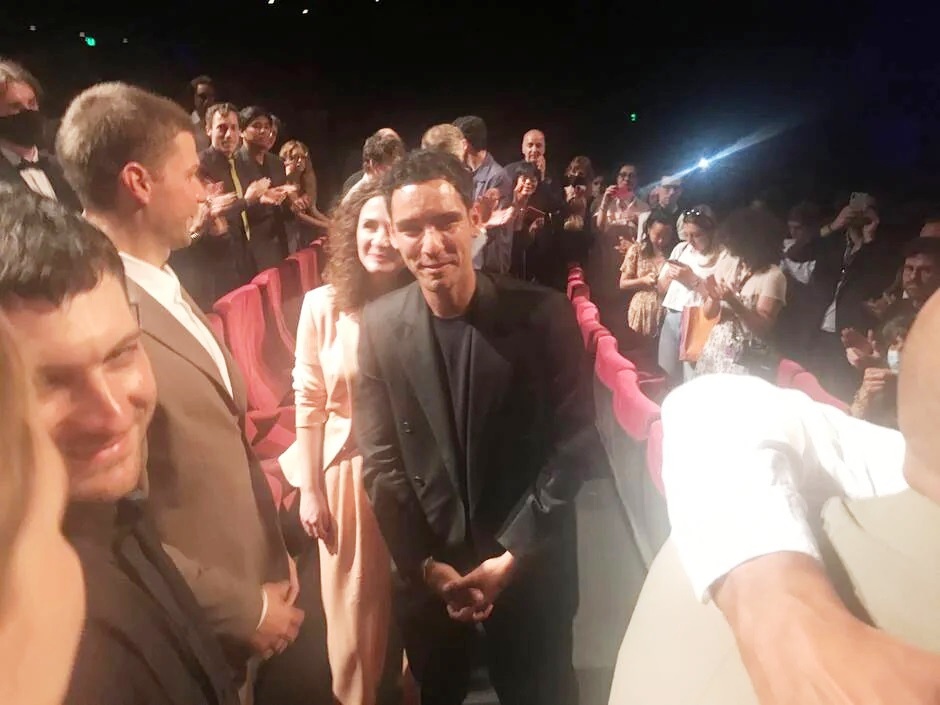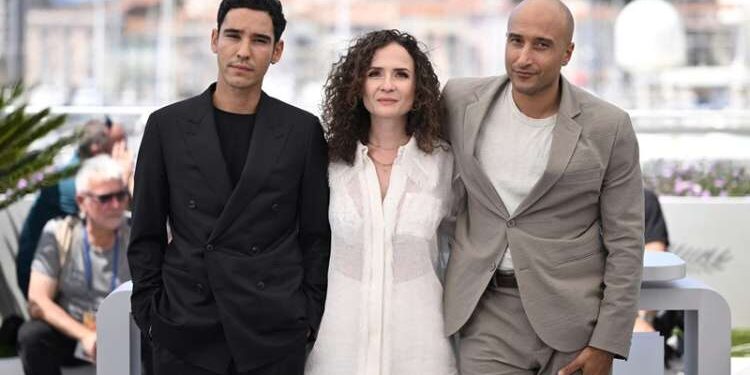The American director of Egyptian origin Lotfy Nathan directed his first feature film Harka in Tunisia. The film made its first at the Cannes Film Festival in the Un Certain Regard section, which allowed the young actor Adam Bessa, who plays the main role, to win the best performance prize.
The presence of Lotfy Nathan in Cannes was an opportunity to ask him a few questions.
Why did you make this film, which tells a story so far from you?
In reality, originally, I did not imagine becoming a director. My dream was to become a painter, but during my studies in Fine Arts, I took lessons for the realization of documentaries. This is how I started to make documentaries, mainly because it did not require a lot of financial resources, but I would have preferred to work on fictions. Moreover, even by making documentaries, I was still trying to incorporate a part of fiction, either by creating fictitious scenes, or by having a subjective approach during assembly.
When the Tunisian revolution broke out, I was passionate about what happened, even if I lived in the United States at the time. The story of Bouazizi particularly captivated me. It was fascinating to see how the act of one person could have such an impact on a country and even on an entire region.
A colleague with whom I worked in Los Angeles offered to make a film on Bouazizi, since I am of Egyptian origin. I found the idea interesting, even if I felt shocked to see that all the Arabs were perceived as the same. However, I was afraid of not being able to tell an authentic story.
And then, what happened? Have you been to Tunisia to discover reality on site?
In 2014, I made my first trip to Tunisia to carry out research. A director introduced me to the people of Cinetelefilms saying to them: “He is an American who wants to make a film on Tunisia”, they found the idea strange, but agreed to be part of the adventure. A few days later, I went to Sidi Bouzid and understood that there was something to tell. I realized that people there were different and had stories to share. It reminded me of my work on documentaries and I started to think of how I could present something new, even for the locals.
However, preparation for the film took several years. I quickly understood that talking about the revolution would no longer be enough, because the years had passed and things had changed. I then started to develop the main character so that he could adapt to the reality of post-revolution years.
What do you have in common with the main character?
I share with the main character certain emotions, even if they are at different levels. I felt empathy towards him, at least when he was created. Although he did not experience the same circumstances as me, we have in common to have gone through a period of despair.
How could you write a script in a language that is foreign to you?
I do not speak Arabic and I am frustrated not to be able to communicate with my family in Egypt when I go. It is perhaps this frustration that pushed me to make a film in Arabic. It is a handicap, and perhaps inconsolate I wanted to make a film in this language to take up a challenge.
How did you create your character and especially how could you put all this intensity in the film?
During my research at Sidi Bouzid, I spoke to the relatives and friends of Mohamed Bouazizi and I observed people to draw my character. I met a lot of people, including a lonely and vulnerable boy in a bar. Although my collaborators opposed it, I spent two days with him. He lived alone on a project, had drug problems, had been rejected by all and had lost his brother by suicide. I found this boy very interesting and wanted to be inspired by my character. I even thought of him to play the main role. However, the producer refused to hire him because of his unpredictability. The shooting lasted 24 days and everything had to be well organized.
And ultimately, the producer was right, since unfortunately, the guy disappeared before filming. I would have liked Adam to meet him to better understand the character, but he was not found. I don’t know where he is today.
However, I was worried about having a Tunisian actor, living in France. At first I wanted an actor who lived on the spot. But Adam is very good and worked very hard. He did a lot of research and looked at a lot of documentaries on the Tunisian revolution and young people in disadvantaged regions. He spent a lot of time absorbing everything and assimilating. Besides, its best interpretation price proves the quality of your work!


How did you work with Adam Bessa?
Before filming, I worked a lot with Adam to prepare his role. He himself made a form of meditation, exploring his character from the inside. Otherwise, I was always trying to put him in the mood of the scene to play. For example for the scene where he attacked a police officer speaking on the phone on the street, I asked the actor playing the policeman to slap Adam in order to put him in a situation of aggressiveness. Then, in my headphones, I heard Adam tell the actor to hit him hard, to strike for real. This approach made the scenes more real and credible.
Are you going to project the film to Sidi Bouzid?
The film will be distributed in several cities in Tunisia. However, I hope to find a way to project it to Sidi Bouzid despite the absence of a projection room in the region. With the Tunisian distributor, we are looking for solutions. If it depended on me, I would project it there without hesitation.
Neïla Driss








